When Medicare coverage ends, it’s important to act quickly to guarantee your loved one’s care continues without interruption. You might find yourself maneuvering through complex options, from appealing the coverage decision to exploring Medicaid eligibility. Understanding your rights and responsibilities during this change is essential, as is knowing the alternative care settings available. The next steps can greatly impact quality of life, so let’s explore what options you have moving forward.
Key Takeaways
- Review the Notice of Medicare Non-Coverage (NOMNC) carefully for the scheduled end date of coverage and your rights.
- Consider appealing Medicare’s decision promptly to potentially extend coverage for skilled nursing care.
- Explore alternative payment options like Medicaid if you qualify based on financial needs.
- Assess other care options, such as assisted living or home care, for ongoing support.
- Seek assistance from a long-term care ombudsman or the State Health Insurance Assistance Program for guidance during this transition.
Understanding Medicare Coverage for Nursing Home Stays

When managing Medicare coverage for nursing home stays, it’s essential to understand the specific criteria and limitations that apply.
Medicare typically covers up to 100 days of skilled nursing care following a hospitalization of at least three days. You must enter the nursing home within 30 days of your hospital discharge.
Medicare covers skilled nursing care for up to 100 days after a three-day hospital stay if you enter a nursing home within 30 days.
This coverage is specifically for rehabilitation and short-term stays, and it excludes long-term custodial care.
Familiarizing yourself with these guidelines can help guarantee you receive the necessary support during recovery, so you can focus on healing without worrying about unexpected costs or coverage gaps in your care.
Notice of Medicare Non-Coverage (NOMNC) Explained
Understanding the Notice of Medicare Non-Coverage (NOMNC) is essential for anyone maneuvering the complexities of Medicare benefits for nursing home care.
This notice informs you that Medicare will cease coverage for your care, typically provided at least two days before the scheduled end date. You might receive it in person, over the phone, or in writing.
It’s vital to pay attention to this notice, as it prompts you to explore your options for continuing care. Being aware of the NOMNC helps you understand your rights and responsibilities, enabling you to make informed decisions about your loved one’s care moving forward.
Rights and Responsibilities After Receiving a NOMNC

Receiving a Notice of Medicare Non-Coverage (NOMNC) can feel overwhelming, but it’s important to recognize your rights and responsibilities as you navigate this challenging situation.
You have the right to appeal the decision, ensuring you understand your options for continued care. It’s your responsibility to act promptly, as waiting too long could limit your choices.
Be sure to review the notice carefully, noting the scheduled end date of coverage. Additionally, you can seek assistance from the long-term care ombudsman if you face discharge issues.
Staying informed and proactive can help you advocate effectively for your care needs.
Options After Medicare Stops Paying for Care
As Medicare coverage comes to an end, you may find yourself facing important decisions regarding your loved one’s care.
First, consider appealing Medicare’s decision for continued coverage, if applicable. If that’s not an option, explore alternatives like Medicaid, which might provide support based on financial needs.
You could also think about shifting to lower levels of care, such as assisted living or home care, which may be more affordable and suitable.
Assess your loved one’s specific needs carefully, as early planning is crucial for maintaining their quality of life while navigating these challenging circumstances effectively.
Navigating the Appeal Process for Medicare Coverage

When facing the end of Medicare coverage, it’s important to know that you have options to appeal the decision.
Understanding the appeal process can help you secure continued coverage for your loved one. Here’s what you should consider:
- Types of Appeals: Know the difference between fast and standard appeals.
- Timing Matters: File fast appeals by noon the day care ends.
- Documentation: Gather necessary paperwork to support your case.
- Seek Help: Utilize the State Health Insurance Assistance Program for guidance.
- Know Your Rights: Familiarize yourself with patient rights during the appeal process.
Stay proactive to guarantee the best care possible.
Exploring Alternative Payment Options for Care
How can families ease the financial burden of care once Medicare coverage ends? You might consider exploring alternative payment options like Medicaid, which can provide assistance based on your loved one’s income and assets.
Private pay is another option, allowing you to cover costs directly, but it’s essential to assess your finances first. Long-term care insurance can also help if you’ve invested in a policy.
Additionally, you could explore assisted living or home care services, which might be more affordable. Evaluating your loved one’s needs and available resources will empower you to make informed decisions for their care.
Resources for Families Seeking Care Payment Guidance

Steering through the complexities of care payment options can feel overwhelming, but there are numerous resources available to help families manage these challenges effectively.
Consider tapping into these valuable tools:
- State Health Insurance Assistance Programs for personalized guidance.
- Elder law attorneys who specialize in care payment issues.
- Financial advisors to explore funding strategies.
- Community resources that offer financial assistance and support.
- Caregiver support networks providing emotional and practical help.
These resources can empower you to make informed decisions, ensuring your loved one receives the care they need without unnecessary financial strain.
Frequently Asked Questions
What Happens if I Miss the NOMNC Notification?
If you miss the Notice of Medicare Non-Coverage (NOMNC), you mightn’t fully understand your loved one’s care options when Medicare ends.
This could lead to confusion or delays in finding alternative payment methods or appealing the decision. It’s essential to act quickly, as missing the notice might hinder your ability to appeal or explore other resources.
Always stay proactive in seeking information and support to guarantee your family member receives the care they need.
Can I Choose a Different Nursing Home After Medicare Ends?
Yes, you can choose a different nursing home after Medicare coverage ends.
You’ll need to assess your loved one’s needs and explore available options, such as Medicaid or private pay.
It’s important to research facilities, considering their quality of care and services offered.
Once you’ve selected a new location, coordinate the transfer with the current nursing home, ensuring a smooth changeover for your loved one’s ongoing care.
Planning ahead can greatly ease this process.
Are There Penalties for Not Appealing Medicare’s Decision?
If you don’t appeal Medicare’s decision, you might miss out on coverage for necessary care, which can lead to hefty out-of-pocket costs.
There aren’t direct penalties for not appealing, but the consequences could severely impact your loved one’s care options and financial situation.
It’s essential to understand your rights and consider appealing if you believe coverage is warranted, as this can lead to continued support during critical recovery periods.
How Does Discharge Affect My Loved One’s Medical Records?
When your loved one gets discharged, it can greatly impact their medical records. The discharge will be documented, noting the reason for the change and any ongoing care needs.
This information helps guarantee continuity of care, whether they move to another facility or require home care. Additionally, any unresolved medical issues or recommended follow-ups will be recorded, which is crucial for future healthcare providers to understand their medical history and needs.
What if My Loved One Needs Urgent Care After Discharge?
If your loved one needs urgent care after discharge, act quickly.
First, assess the situation to determine if emergency care is necessary. If so, take them to the nearest hospital or call for assistance.
Remember, Medicare won’t cover care in a facility if it’s not deemed medically necessary.
You can also explore other funding options, like Medicaid or private insurance, to support their care needs.
Stay informed and proactive in securing the best care possible.
Bottom Line
Maneuvering the end of Medicare coverage can be challenging, but understanding your options is key to ensuring your loved one receives the care they need. By appealing the decision, exploring Medicaid, or considering alternative care settings, you can maintain their quality of life. Remember, early planning and awareness of your rights can make this change smoother. Utilize available resources and support to guide you through this process, empowering you to make informed decisions for your loved one’s future.




